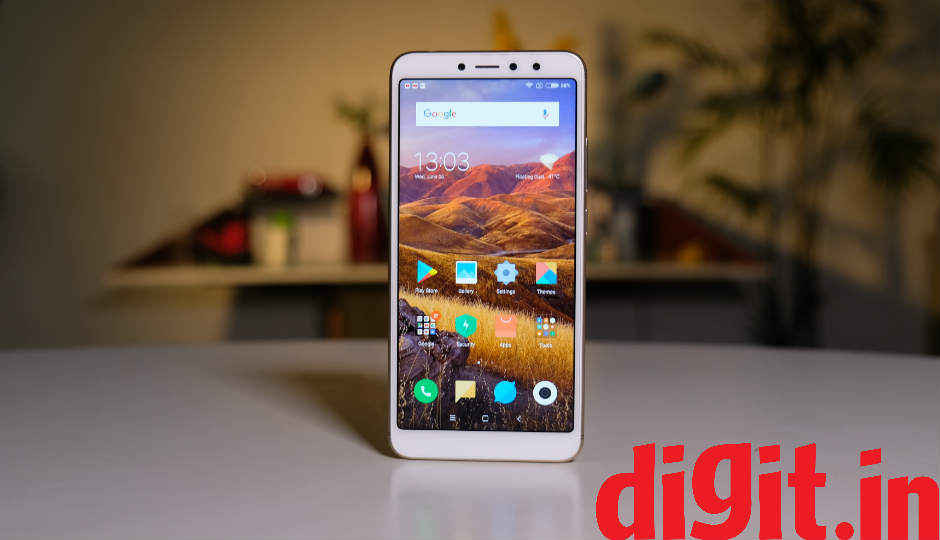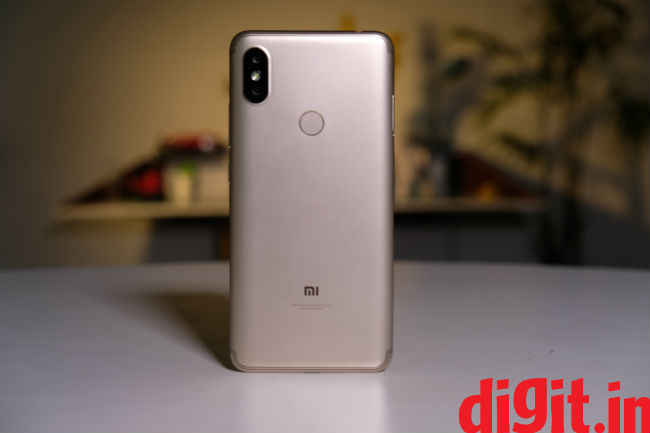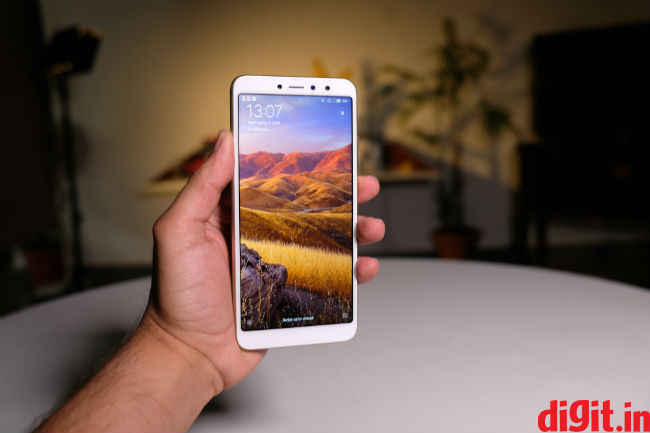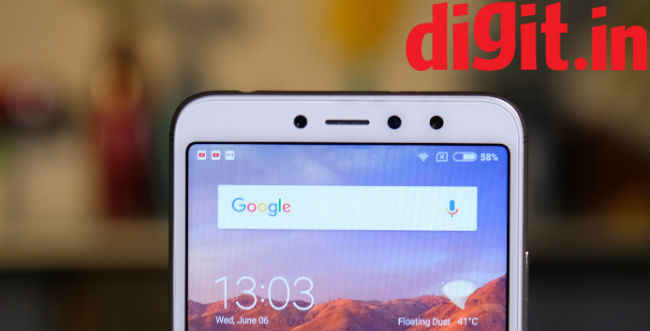Xiaomi Redmi Y2 first impressions: Not just a selfie-centric smartphone

The Redmi Y2 may have a strong focus on selfies, but that doesn't mean it compromises on the other important features, especially the camera at the back.
Xiaomi’s onslaught of mid-range phones continue with the Redmi Y2. The new series introduced last year saw Xiaomi dabble with the selfie-centric market that has mostly been dominated by the likes of Oppo and Vivo. Nevertheless, the Y1 last year proved that Xiaomi too can pay attention to the needs of selfie-lovers and the Y2 launched today is only another step towards making selfies great again. However, there’s more going in the phone this time than just a good selfie camera. Before we get started, here's what the Redmi Y2 looks like on paper:
Redmi Y2 Price and Details: The Redmi Y2 touts a 5.99-inch HD+ display with an aspect ratio of 18:9. On the hardware front, the phone has a 14nm Snapdragon 625 processor clocked at 2 Ghz. It features a 16-megapixel camera with f/2.0 aperture on the front and a 12-megapixel + 5-megapixel setup at the back. The Y2 draws power from a 3,080mAh battery and comes with MIUI 9.5 based on Android Oreo 8.1 out of the box. It is priced at Rs 9,999 for the 3GB+32GB version and Rs 12,999 for the 4GB/64GB variant.
Redmi Y2 Release Date in India: The Xiaomi Redmi Y2 will be available in India starting July 12.
Redmi Y2 Sale on Amazon: Those looking to purchase the device can head on to Amazon.in at 12PM on June 12.
Now that you know the specs and price for the phone, you may have realised that the Redmi Y2 essentially cannibalises it’s own best-selling Redmi Note 5 Pro by offering the same rear camera for under Rs 10,000. It’s interesting to see how people respond to the new device and for the few minutes I got to play with the device, I saw no reason for this to be passed over for anything else at that price, except for another one of Xiaomi’s offering.
The sub-Rs 10,000 segment now houses three Xiaomi phones launched this year — The Redmi 5, The Redmi Note 5 and now the Redmi Y2. While this does create a lot of confusion in the minds of buyers, Xiaomi’s messaging is clear. If you need a compact phone, the Redmi 5 is the answer. If you need a phone with a long battery and a big-enough screen with overall balanced hardware, pick up the Redmi Note 5 Pro, and if you love to use the front camera more often than you realise, look no further than the Y2. That’s what Xiaomi claims, but the lines are so blurred this time that you can pick up either of the three depending on their availability.
The first thing you’ll notice the moment you take the Redmi Y2 out of the box is how similar the phone looks to the Redmi Note 5 Pro. The white and gold metal unibody design. The vertical dual camera setup at the back in the top left corner. The taller display. But that doesn’t mean Xiaomi hasn’t tweaked the design a bit. There’s a slight bulge around the edges that Xiaomi claims offers added protection to the screen if it falls accidentally. We’ll surely put that claim to test, but the bulge seems like the only way to differentiate between the Redmi Note 5 Pro and the Y2 from the outside.
Nevertheless, the spec-sheet of the Redmi Y2 is quite impressive for its price. It is powered by the Qualcomm Snapdragon 625 chipset that was the mid-range phone’s processor of choice last year. It’s good to see the efficient performer trickle down to the budget segment. The chipset is coupled with up to 4GB of RAM and 64GB of storage, which is pretty standard in phones these days. There’s also a 3GB RAM variant for India, but frankly, 4GB of RAM is essential for running a Xiaomi phone (powered by MIUI) smoothly in the long run.
At the same price, the Redmi Note 5 offers a full HD display as well as Gorilla Glass protection on it. The Redmi Y2 offers neither. The Redmi Y2 touts a 5.99-inch 18:9 display but only of HD resolution. If you are simply browsing the phone, you won’t be missing the full HD resolution much as MIUI’s colours are dense enough to look good on a HD display. But when I watched an YouTube video, the difference is noticeable.
The Redmi Y2, that launched as the Redmi S2 in China has a dedicated slot for a microSD card apart from the dual-SIM slot. It supports dual 4G dual VoLTE. The decision to offer a dedicated slot is conscious one by Xioami as it believes selfie lovers who take 999 photos in a day will need the extra storage as well as a secondary SIM for maximising their data needs.
The focus of the Y2 is of course the front camera, but that doesn’t mean the rear camera is compromised. It offers a similar dual camera as the more expensive Redmi Note 5 Pro with a 12+5 megapixel setup. The secondary sensor is for depth sensing. The 12-megapixel sensor has an aperture of f/2.2 with fairly standard 1.25um pixel pitch. What’s new is a gyroscope-powered EIS. The few photos I shot seemed good enough with the quality I have come to expect from Xiaomi phones.
But like I said, the focus is selfies, so the front camera has received more love from Xiaomi. You get a 16-megapixel camera with f/2.0 aperture. Interestingly, the 16-megapixel front camera relies on the pixel-binning technology that combines the megapixels into larger pixels to allow for more light absorption. The feature is seen mostly on high-end phone, more recently in the Huawei P20 Pro and it’s heartening to see a phone priced under Rs 10,000 come with the feature. Does that make a difference in your selfies? I didn’t notice a visible difference, but it surely manages the background light quite well. The dynamic range is much improved, but I presume under lowlight, it will create much less noise. Further testing will reveal more about how well the tech has been implemented.
The Redmi Y2 comes with MIUI 9.5 but powered by Android Oreo 8.1 out of the box. I was pleasantly surprised to see Xiaomi offering the latest Android build which is a big departure from the company’s track record. Although how often it receives updates will have to be seen. The Redmi Y2 seems reliable, and despite a strong focus on selfies, it doesn’t seem to compromise much on other features, especially the camera at the back.









